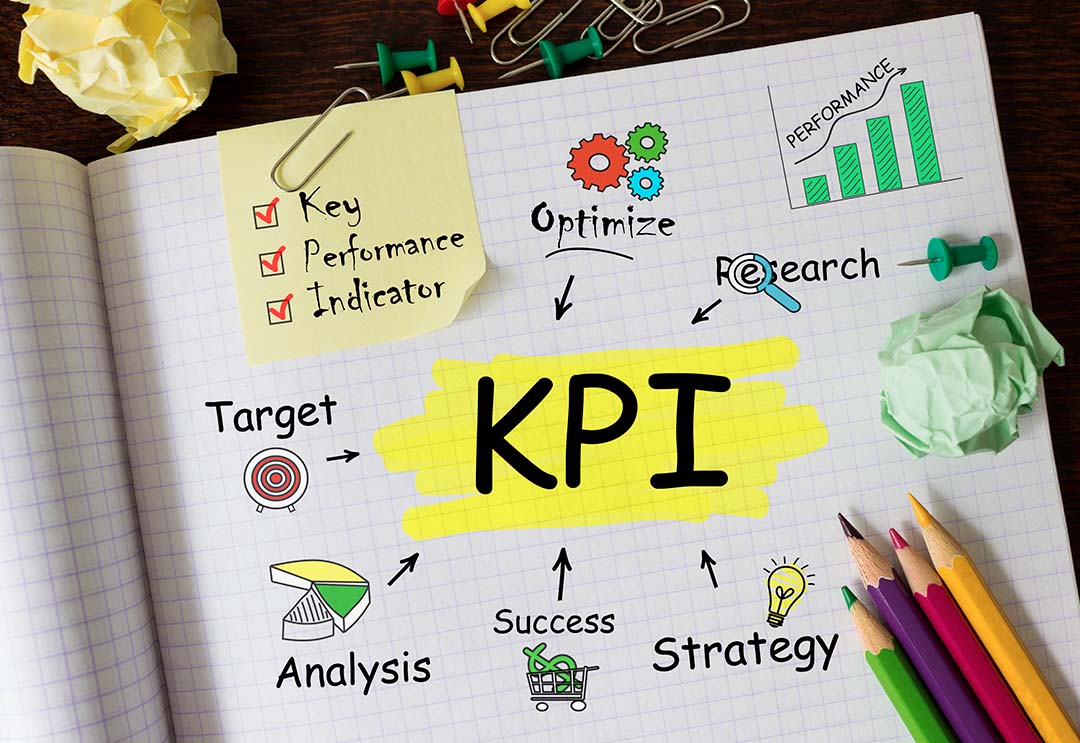Incentive compensation is usually associated with sales teams. However, the variable component of remuneration is an important criterion in the recruitment and retention of most employees. Consequently, introducing a variable component into the remuneration of other positions in the company makes sense. However, this tailor-made remuneration must be adapted to each individual’s responsibilities and targets. In this article, we explain which key performance indicators to choose using four concrete cases.
1. HR functions: KPIs for better workforce management
A real linchpin in companies, HR managers have a special relationship with employees and decision-makers. Their job is to help employees achieve the objectives set by the company. They are therefore responsible for the well-being of employees, preventing psychosocial risks and the strategy for recruitment, training and skills development.
The KPIs (key performance indicators) that should be prioritised for HR functions must cover recruitment, workforce management and employee training:
- Recruitment is measured in terms of the number of new employees taken on over a defined period of time, the retention rate after one year, but also the number of spontaneous applications received, sometimes through a co-opting program.
- Good workforce management is measured, for instance, by satisfaction surveys on well-being in the company, by the number of complaints about the quality of payroll processing or by the rate of absenteeism. General turnover is also a valuable indicator for assessing workforce management.
- Employee training is also at the heart of HR. KPIs should therefore relate to access to training as well as the number of hours of training provided per employee and per category. The percentage of employees who have not received training for at least two years should also be taken into account, as should the number of employees who have received training leading to certification.
2. Marketing: optimising customer data management
It is no longer possible to separate marketing and sales. Marketers provide vital expertise to sales staff in terms of managing and optimising customer data. Their ability to predict and anticipate buying behaviour is an invaluable aid to sales managers. Incentive compensation is therefore relevant to marketing functions and the associated KPIs are easy to identify.
These KPIs concern the number and quality of leads and traffic generated:
- The number of inbound leads, by channel, as well as by each marketing tool is the first indicator for marketing staff to evaluate.
- The number of qualified sales leads, both by channel and by month, as well as their transformation into actual deals, are also tangible elements that come under marketers’ objectives.
- The number of visitors to a commercial site, social media site or any other online platform as well as the number of clicks generated by call-to-actions, and therefore the quality of these call-to-actions, should also be measured.
3. Finance and accounting: the right KPIs for good financial performance
Financial controllers, management controllers and accountants can also benefit from incentive compensation. The performance of finance and accounting professionals is measured all the more easily as the results of their work are very specific.
The KPIs that should be selected for finance and accounting strategy managers are different depending on the position:
- Administrative and financial managers can be assessed in terms of cost optimisation, team management or the improvement of financing conditions.
- Controllers, as well as internal auditors, credit managers and chief accountants may be given targets regarding cost reduction, the optimisation of reporting times, the appropriateness and reliability of the company budget and projected trends. ERP-type projects may also be considered.
4. Logistics: choosing KPIs to save time and quality
Freight transport, logistics management and the entire supply chain process and flow are particularly well suited to the KPI system and therefore to incentive compensation. Logistics is entirely dependent on good time optimisation and product care. This means it is essential to determine consistent criteria.
The specific KPIs for a company’s supply chain concern stock management as well as transport and logistics:
- Good stock management is measured by evaluating the stockout rate and the turnover of a product. The number of pallets received and dispatched, but also the number of errors when putting together pallets, should be taken into account. Stock management also relates to the speed at which orders and packages are prepared by picking operators. The empty mileage rate is another important criterion to include, as is the empty rate on a lorry and, in general, the logistics ratios and rates.
- Transport and logistics can include targets for the number of products loaded per lorry and delivered to the destination within the contractual timeframe. The number of trips per day should also be defined and evaluated, as well as the time it takes to load vehicles at the centre or the number of miles driven empty.
Incentive compensation has its place in the remuneration of support functions. It enables companies to better achieve their targets and is highly motivating for employees. By carefully choosing the KPIs, the variable component can become a real performance booster for all your employees.





